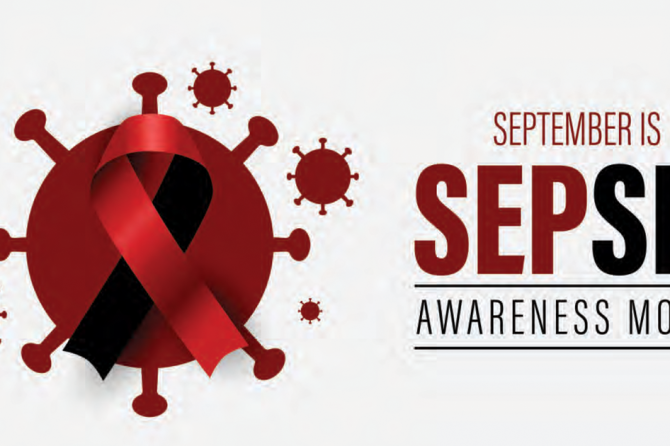
September is Sepsis Awareness Month, a month dedicated to raising awareness of sepsis. During this time, hospitals andhealthcare professionals draw attention to this deadly butoften preventable medical condition.
“Cancer, heart disease and diabetes are the health concerns that keep most people up at night, but there is another major threat that people don’t think about. It is simply called sepsis,” explained PMC Medical Director of Infectious Disease and Prevention Fadi Al Akhrass, MD. “Most infections do not lead to sepsis. However, once an infection turns septic, TIME is of the essence when it comes to treating it.”
Every year over 1.7 million people in the U.S are diagnosed with sepsis, which is roughly as prevalent as cancer. Sepsis claims more than 350,000 lives each year, more than prostate cancer, breast cancer and opioid overdoses combined.
Although sepsis is common, there are many misconceptions among the public. Outside the medical community, most people do not understand what sepsis is, how dangerous it can be or how to prevent it. Simply put, sepsis is a life-threatening response to infection. When this happens, the body’s immune system becomes erratic, triggering the beginning of sepsis. As sepsis progresses, the immune system spirals out of control, potentially damaging the heart, lungs, kidneys and other organs. If left untreated, death can occur in as little as 12 hours.
Many who survive sepsis face ongoing challenges such as limb amputation, difficulty in memory and concentration, anxiety/depression and a compromised immune system, as well as a higher risk of developing sepsis again. Those at a higher risk for sepsis include infants and younger children, anyone over 65, those with chronic illnesses and those with compromised immune systems.
“Like anything else, prevention is the best plan,” explained Dr. Fadi Al Akhrass. “Infection can be prevented by practicing good hand hygiene, avoiding people with active infections and getting recommended vaccines. If an infection does occur, follow the appropriate steps for treatment including taking antibiotics
and other medications prescribed by your doctor.”
The threat of sepsis is one of many reasons everyone is encouraged to see a primary care provider regularly to care for their health. To make an appointment
with a Pikeville Medical Center Primary Care Provider, call 606-430-2213.










